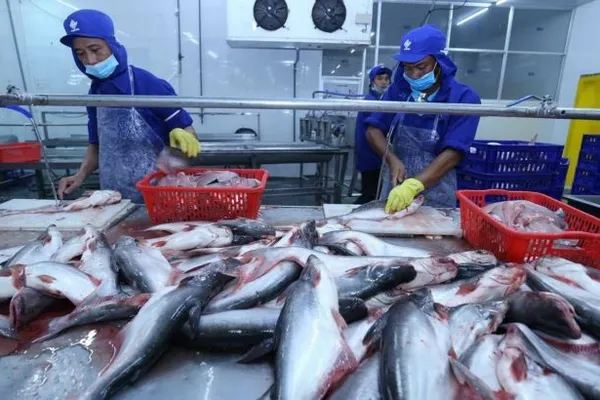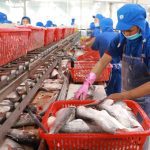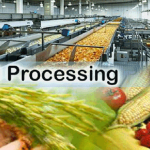Are you fascinated by the seafood industry and dreaming of working in fish processing? Canada offers exciting opportunities for foreigners to pursue fish processing jobs while enjoying the benefits of visa sponsorship.
In this blog post, we will explore the world of fish processing jobs in Canada, discussing the various roles available, the visa sponsorship process, and the numerous advantages it offers to foreign individuals seeking employment in this dynamic field.
Whether you’re an experienced fish processor or someone looking to start a career in the industry, this guide will provide you with valuable insights and essential information to kickstart your journey in fish processing jobs in Canada.
Benefits of Fish Processing Jobs in Canada With Visa Sponsorship
Fish processing jobs in Canada with visa sponsorship offer numerous benefits for foreigners seeking employment in the seafood industry. Here are some advantages:
- Stable Employment: Canada’s seafood industry is robust and continually growing, providing a stable job market for fish processors. The demand for processed fish and seafood products remains high, ensuring a steady stream of employment opportunities.
- Competitive Wages: The Canadian seafood industry is known for offering competitive wages to its workers, including fish processors. With fair compensation, individuals can enjoy a fulfilling career while earning a decent income to support themselves and their families.
- Skill Development: Fish processing jobs provide an excellent platform for individuals to develop their skills in various aspects of the industry. Whether it’s mastering knife techniques, quality control procedures, or packaging operations, workers can enhance their expertise and broaden their knowledge within the field.
- Cultural Exchange: Working in the Canadian seafood industry allows foreign individuals to immerse themselves in the country’s rich cultural diversity. They have the opportunity to interact with people from different backgrounds, learn about Canadian customs and traditions, and build meaningful connections.
- Visa Sponsorship: The availability of visa sponsorship programs specifically for fish processing jobs makes it easier for foreigners to obtain the necessary work permits. This sponsorship facilitates the legal entry and employment of foreign individuals in Canada, opening doors to exciting career opportunities.
- Work-Life Balance: Canada is known for promoting a healthy work-life balance. Fish processors can expect reasonable working hours, enabling them to enjoy their personal time, explore the country’s natural beauty, and engage in recreational activities.
- Quality Working Environment: The Canadian seafood industry places a strong emphasis on maintaining high-quality and hygienic working environments. Workers benefit from safe and regulated workplaces, ensuring their well-being and reducing occupational hazards.
- Access to Social Benefits: As employees in Canada, fish processors with valid work permits may have access to various social benefits, such as healthcare coverage, retirement plans, and other government programs designed to support workers and their families.
- Professional Growth Opportunities: The seafood industry offers avenues for professional growth and advancement. With experience and dedication, fish processors can progress to supervisory roles, quality assurance positions, or even explore entrepreneurship within the industry.
- Contributing to Sustainable Fisheries: By working in fish processing, individuals play a vital role in supporting sustainable fishing practices. They contribute to the responsible utilization of marine resources, ensuring the long-term viability of fisheries for future generations.
Fish processing jobs in Canada with visa sponsorship present clear and self-explanatory benefits for foreigners. Stable employment, competitive wages, skill development opportunities, cultural exchange, and access to social benefits are among the advantages that make these jobs attractive to individuals seeking a rewarding career in the seafood industry.
Various Fish Processing Jobs Positions Open to Foreigners
There are various fish processing job positions open to foreigners in Canada’s thriving seafood industry. These positions offer opportunities for individuals to contribute their skills and expertise to the processing and preparation of fish and seafood products. Here are some of the job positions commonly available:
- Fish Cutter/Filleters: Fish cutters or filleters are responsible for precisely cutting and filleting fish, ensuring proper portioning and presentation. They use specialized knives and techniques to extract fillets with precision and efficiency.
- Quality Control Inspectors: Quality control inspectors play a crucial role in maintaining product standards. They assess the freshness, appearance, and overall quality of fish and seafood products, ensuring they meet industry regulations and customer expectations. Inspectors conduct thorough inspections and implement quality control measures to maintain product integrity.
- Packaging Technicians: Packaging technicians are responsible for carefully packaging fish and seafood products. They ensure that products are properly labeled, packaged, and sealed, adhering to specific guidelines and industry regulations. Packaging technicians may operate machinery to facilitate the packaging process.
- Fish Graders: Fish graders assess the quality and size of fish, sorting them into different categories based on specific criteria. They play a vital role in ensuring that fish products meet industry standards and customer preferences. Graders evaluate the appearance, color, texture, and size of fish to determine their grading.
- Processing Line Workers: Processing line workers contribute to various stages of fish processing. They perform tasks such as cleaning, gutting, scaling, and preparing fish for further processing. These workers work in a fast-paced environment, following established procedures to maintain efficiency and productivity.
- Quality Assurance Technicians: Quality assurance technicians monitor and maintain product quality throughout the processing stages. They conduct regular inspections, implement quality control measures, and ensure that processing operations comply with industry standards and regulations.
- Machine Operators: Machine operators are responsible for operating and maintaining the machinery used in fish processing facilities. They oversee the operation of equipment such as filleting machines, scaling machines, packaging machinery, and other specialized processing equipment.
- Production Supervisors: Production supervisors oversee the overall operations of fish processing facilities. They coordinate activities, manage the production schedule, ensure compliance with safety and quality standards, and supervise a team of workers. Production supervisors play a crucial role in maintaining productivity and efficiency within the processing facility.
Visa Sponsorship Process for Fish Processing Jobs in Canada
The visa sponsorship process for fish processing jobs in Canada provides a pathway for foreigners seeking employment in the seafood industry. Here is an overview of the steps involved:
- Research and Find Job Opportunities: Begin by researching fish processing job opportunities in Canada. Look for companies or processing facilities that are eligible to hire foreign workers and offer visa sponsorship. Online job portals, industry associations, and government websites can be valuable resources for finding suitable positions.
- Apply and Secure a Job Offer: Once you identify a suitable job opportunity, submit your application to the employer. Highlight your relevant skills, experience, and qualifications in your resume and cover letter. If selected, the employer will extend a job offer, indicating their intent to hire you for the fish processing position.
- Obtain a Labour Market Impact Assessment (LMIA): In most cases, Canadian employers need to obtain a positive LMIA from Employment and Social Development Canada (ESDC) to hire a foreign worker. The LMIA confirms that hiring a foreign worker will not negatively impact the Canadian labor market. Your employer will initiate this process and provide the necessary documents.
- Employer Submits the Offer of Employment to Immigration, Refugees, and Citizenship Canada (IRCC): With a positive LMIA in hand, your employer will submit the offer of employment to IRCC. This step is crucial as it demonstrates that your employment is supported by a Canadian employer and is a key requirement for the visa sponsorship process.
- Gather Required Documents: As a prospective employee, you will need to gather the required documents for your visa application. These typically include a valid passport, educational certificates, work experience letters, language proficiency test results, and proof of financial resources to support yourself in Canada.
- Submit Visa Application: Complete the visa application process through the appropriate visa office or online portal. Pay the necessary fees and submit all required documents, including the job offer letter and supporting materials. Ensure that you meet the eligibility criteria for the specific visa category related to your fish processing job.
- Medical Examination and Biometrics: In some cases, you may be required to undergo a medical examination to ensure you meet the health requirements set by IRCC. Additionally, you may need to provide biometrics (fingerprints and a photo) at a designated application center.
- Wait for Visa Approval: After submitting your application, you will need to wait for a decision on your visa. The processing time can vary, so it is essential to check the estimated processing times for your specific visa category. You may be required to provide additional information or attend an interview during this stage.
- Obtain Work Permit: Once your visa application is approved, you will receive a letter of introduction from IRCC. This letter will allow you to obtain your work permit upon arrival in Canada. Present the letter of introduction to the border services officer when you enter Canada, and they will issue your work permit.
- Begin Working as a Fish Processor in Canada: With your work permit in hand, you are now authorized to work as a fish processor in Canada. Follow any additional instructions provided by your employer and adhere to the terms and conditions of your work permit.
The visa sponsorship process for fish processing jobs in Canada involves a collaboration between you, your employer, and the relevant Canadian immigration authorities.
By following these steps and ensuring that you meet the requirements, you can navigate the process with clarity and embark on a rewarding career in Canada’s fish processing industry.
Fish Processing Jobs in Canada For You – APPLY NOW!
1. Fish Plant Worker
- Company: CB Island Fisheries Ltd
- Location: North Vancouver, BC
- Salary: 17.00 hourly / 40 hours per week
2. Seafood Preparer – Fish and Seafood Processing
- Company: North Delta Seafoods Ltd.
- Location: Delta, BC
- Salary: 18.00 hourly
Application Process For Fish Processing Jobs in Canada With Visa Sponsorship
The application process for fish processing jobs in Canada with visa sponsorship is a clear and self-explanatory procedure. Here is a step-by-step overview:
- Research Job Opportunities: Begin by researching fish processing job openings in Canada. Look for companies or processing facilities that offer visa sponsorship to foreign workers. Explore online job portals, industry websites, and government resources to find suitable positions.
- Prepare Your Documents: Gather the necessary documents for your application. These typically include a valid passport, educational certificates, work experience letters, language proficiency test results, and proof of financial resources to support yourself in Canada. Ensure that your documents are up to date and meet the requirements set by Canadian immigration authorities.
- Customize Your Resume and Cover Letter: Tailor your resume and cover letter to highlight your relevant skills, experience, and qualifications in the fish processing industry. Emphasize any specialized training or certifications you have obtained. Clearly communicate your interest in working in Canada and your readiness to contribute to the seafood industry.
- Submit Your Application: Apply for fish processing jobs by submitting your resume and cover letter directly to the employers or through their designated application channels. Follow the instructions provided and ensure that you provide all required information accurately and comprehensively.
- Employer Review and Selection: The employers will review the applications they receive and select candidates based on their qualifications and suitability for the positions. If you are shortlisted, the employer may contact you for an interview or request additional information.
- Interview and Assessment: Prepare for interviews by researching the company and familiarizing yourself with common interview questions for fish processing positions. During the interview, demonstrate your knowledge, skills, and enthusiasm for the role. Be prepared to discuss your experience in the seafood industry and your willingness to relocate to Canada.
- Receive a Job Offer: If the employer is impressed with your qualifications and interview performance, they may extend a job offer to you. The job offer will outline the terms and conditions of your employment, including salary, working hours, and other relevant details.
- Visa Sponsorship Process: Once you have received a job offer, your employer will initiate the visa sponsorship process. They will work with the appropriate Canadian immigration authorities to obtain a Labour Market Impact Assessment (LMIA), which is a requirement for hiring foreign workers. The employer will also provide you with the necessary documents to support your visa application.
- Submit Visa Application: Complete the visa application process through the appropriate visa office or online portal. Pay the required fees and submit all the necessary documents, including the job offer letter and supporting materials. Follow the instructions provided by the immigration authorities and ensure that you meet the eligibility criteria for the specific visa category related to fish processing jobs.
- Wait for Visa Approval: After submitting your application, you will need to wait for a decision on your visa. The processing time can vary, so it is important to check the estimated processing times for your specific visa category. You may be required to provide additional information or attend an interview during this stage.
- Obtain Work Permit: If your visa application is approved, you will receive a letter of introduction from the immigration authorities. This letter will allow you to obtain a work permit upon arrival in Canada. Present the letter of introduction to the border services officer when you enter Canada, and they will issue your work permit.
- Begin Working as a Fish Processor in Canada: With your work permit in hand, you are now authorized to work as a fish processor in Canada. Follow any additional instructions provided by your employer and adhere to the terms and conditions of your work permit.
By following these steps and ensuring that you meet the requirements, you can navigate the application process for fish processing jobs in Canada with visa sponsorship successfully.
Conclusion
Would You Like To Apply For This Jobs/Sponsorship?
Enter Your Email Address HERE & You Will Receive a Notification About Your Application. If it shows "Subscribed" CLICK HERE to follow on Telegram for updatesFish processing jobs in Canada offer a promising opportunity for foreigners looking to pursue a career in the seafood industry. With visa sponsorship programs in place, foreigners with the relevant skills and qualifications can contribute their expertise to Canada’s thriving fish processing sector.
By following the necessary steps, including submitting a visa application, awaiting approval, and obtaining a work permit, you can embark on a fulfilling journey as a fish processor in Canada. Overall, fish processing jobs in Canada with visa sponsorship provide a gateway for foreign individuals to contribute their skills, learn from a diverse workforce, and thrive in the country’s thriving fish processing industry.
To conclude, fish processing jobs in Canada with visa sponsorship offer a unique opportunity for foreigners to enter and thrive in the country’s robust seafood industry. With a straightforward application process and the support of visa sponsorship programs, you can pursue fulfilling careers in fish processing and contribute your skills and expertise to this growing sector.



![Get a Job + Visa: How To Move To Canada With FREE Visa Sponsorships [NEW UPDATES] EASIEST & FASTEST](https://hotcampusnews.com/wp-content/uploads/2023/07/EASIEST-FASTEST-150x150.jpg)



I’m interested this job